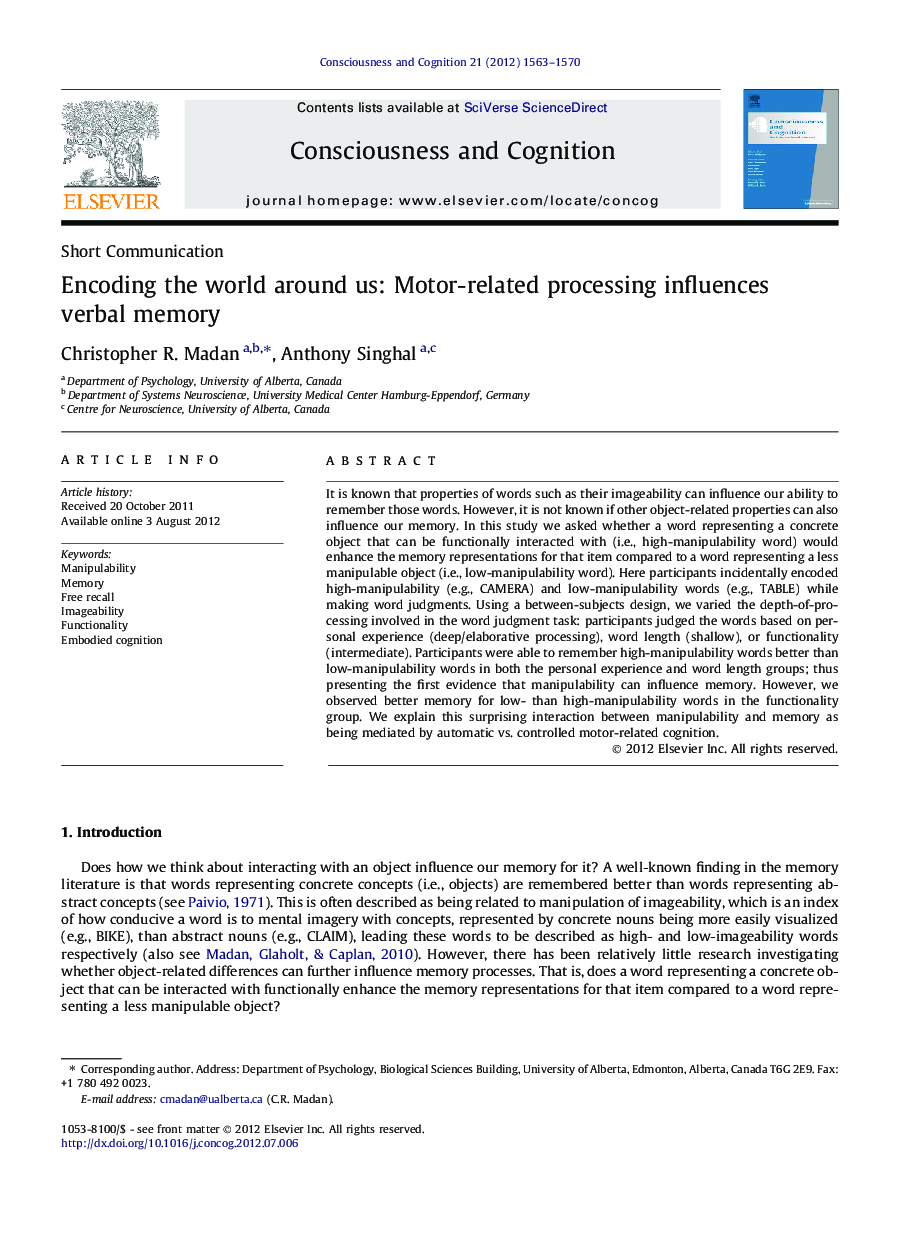| Article ID | Journal | Published Year | Pages | File Type |
|---|---|---|---|---|
| 927646 | Consciousness and Cognition | 2012 | 8 Pages |
It is known that properties of words such as their imageability can influence our ability to remember those words. However, it is not known if other object-related properties can also influence our memory. In this study we asked whether a word representing a concrete object that can be functionally interacted with (i.e., high-manipulability word) would enhance the memory representations for that item compared to a word representing a less manipulable object (i.e., low-manipulability word). Here participants incidentally encoded high-manipulability (e.g., CAMERA) and low-manipulability words (e.g., TABLE) while making word judgments. Using a between-subjects design, we varied the depth-of-processing involved in the word judgment task: participants judged the words based on personal experience (deep/elaborative processing), word length (shallow), or functionality (intermediate). Participants were able to remember high-manipulability words better than low-manipulability words in both the personal experience and word length groups; thus presenting the first evidence that manipulability can influence memory. However, we observed better memory for low- than high-manipulability words in the functionality group. We explain this surprising interaction between manipulability and memory as being mediated by automatic vs. controlled motor-related cognition.
► Participants judged words on personal experience, word length, or functionality. ► Participants were later given a free recall task. ► Memory was enhanced for words that automatically evoked motor-related processing. ► The effect reversed when motor-related processes occurred deliberately and consciously. ► Brain activity associated with motor-related processes may enhance memory.
